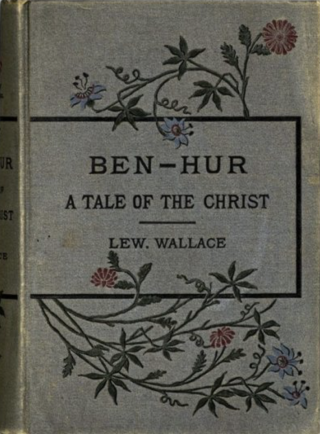Wallace is buried in his hometown of Crawfordsville, in a cemetery near Indiana Route 231. Over his grave stands a gaudy marker of which he surely would have approved—an obelisk draped in a granite rendering of Old Glory. His epitaph is a line taken from Ben-Hur: “I would not give one hour of life as a Soul for a thousand years of life as a man.”
That line is spoken by Balthazar, one of the three Wise Men who arrive in Bethlehem to herald the virgin birth, and, in Wallace’s novel, the man who shepherds Judah Ben-Hur toward a belief in Christ’s divinity. Wallace professed that writing the novel led him to his own belief in Christ, though he never joined a church. (“Not that churches are objectionable to me, but simply because my freedom is enjoyable,” he explained.) There’s no reason to doubt the sincerity of Wallace’s faith, and yet it’s hard to believe that he ever came to share Balthazar’s disdain for earthly endeavor. Few men in American history have made more of their time in this life, or been so concerned with the legacy they were leaving behind.
It would surely please Wallace to know that he achieved a kind of immortality in this world. Though his name is not well remembered today, his novel has never disappeared from the American landscape. Earlier this month, scholars convened at Rutgers for a daylong conference on the book, covering everything from its theology to its geology. This Easter weekend, the Ovation channel will air the American premiere of an excellent Canadian miniseries adaptation of Ben-Hur, starring, among others, Hugh Bonneville of Downton Abbey. MGM, meanwhile, has just bought a script for a new feature film version. In the item reporting MGM’s acquisition, Deadline Hollywood noted that scripts about Pontius Pilate, Noah, and two about Moses have lately attracted attention from powerbrokers like Brad Pitt, Ridley Scott, and Steven Spielberg—attention that is sure to intensify in the wake of the record-setting ratings success of the History Channel’s The Bible miniseries. That Americans can’t resist a Biblical epic may seem intuitive in 2013, but it wasn’t in 1876. All of these productions owe something to Lew Wallace.
Wallace, in turn, surely owed some part of his literary success to his military failure. Unable to live up to his romantic ideal of the gallant soldier, he was left to imagine such a soldier in his fiction. In Judah Ben-Hur, he created the hero he wished he’d been at Shiloh, a paragon of strength and pluck.
Wallace returned to Shiloh several times after the war, surveying the land for new evidence to support his version of events. During one trip, made after Ben-Hur had won him fame and fortune, he found the tree next to which he’d camped one night. It had been a sapling then; it was now full-grown. Wallace broke a branch from its trunk and sent it off to Tiffany & Co., in New York, which outfitted it with an elegant ivory handle. Cane or scepter? A symbol of frailty or power? It could be either. Shiloh had laid Wallace low—and set him on his roundabout road to glory.
